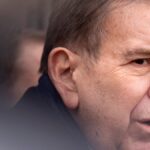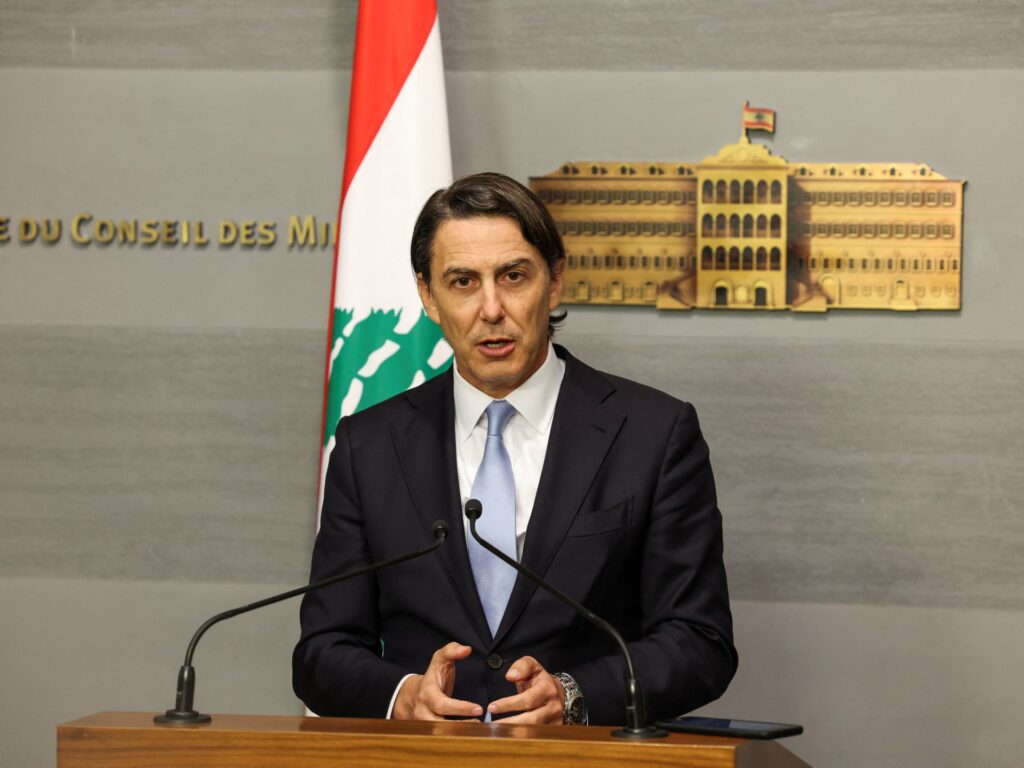
The Israeli military will withdraw completely from south Lebanon, United States envoy Amos Hochstein has said, despite recent reports that Israel is planning to maintain a permanent presence in the country.
Hochstein’s statement on Monday came as Israel was withdrawing its forces from Naqoura in the western sector of the border, with the Lebanese army deploying in the area.
“The Israeli military started its withdrawal from Naqoura, most of the western sector and back into Israel proper today, south of the Blue Line,” Hochstein told reporters in Beirut, referring to the unofficial border between the two countries.
“These withdrawals will continue until all Israeli forces are out of Lebanon completely.”
However, the US official did not specify a timetable for the Israeli withdrawal.
A ceasefire agreement reached in November between Israel and Hezbollah stipulates that Israeli forces must leave Lebanon within 60 days, by January 26.
But media reports from Israel have suggested that the Israeli military does not plan on honouring the deadline.
Advertisement
Lebanon’s Prime Minister Najib Mikati said in a statement after meeting Hochstein on Monday that delaying the Israeli withdrawal from Lebanon is “strongly rejected”.
Last week, the United Nations reiterated its call for a “timely” Israeli withdrawal from Lebanon.
The Israeli military has been conducting near-daily attacks in Lebanon in violation of the ceasefire, including air strikes across the country, ground advances and the destruction of homes in areas under its control.
Israel argues that it is enforcing the agreement, which says that Hezbollah must withdraw its forces to the north of the Litani River, about 30km (19 miles) from the Israeli border.
Despite the Israeli attacks, Hezbollah has held its fire since the agreement came into effect, with the exception of a single “warning attack” against an Israeli base last month.
Hezbollah officials have said that they are allowing space for the Lebanese government to address the Israeli violations through diplomatic channels and the US-led “mechanism” to monitor the agreement.
But the Hezbollah chief Naim Qassem warned on Saturday that the group’s patience may run out before or after the 60-day period. “When we decide to do something, you will see it directly,” Qassem said in a televised speech.
Hezbollah started attacking Israeli military positions after the outbreak of the 15-month war on Gaza in a campaign that it said was meant to pressure Israel to end its offensive against the besieged enclave.
After nearly a year of low-level cross-border hostilities, Israel launched an all-out war in Lebanon, killing thousands of people and destroying large parts of the country.
Advertisement
During its onslaught, Israel dealt heavy blows to Hezbollah, assassinating several of its top military and political officials, including its powerful leader Hassan Nasrallah.
The Israeli army also claimed it had wiped out most of the group’s rocket arsenal.
However, Hezbollah claimed victory after the war, saying that it halted Israel’s ground advances and inflicted heavy damage on the invading soldiers. The Lebanese group also continued to fire rockets and drones at Israel throughout the conflict.
On Sunday, Israeli Defence Minister Israel Katz warned that the country would be “forced to act” if Hezbollah does not pull away from the border.
But Hochstein has suggested that the fragile ceasefire is holding. “This process is not smooth, but it is successful,” he said on Monday.
The Lebanese army had confirmed its deployment in Naqoura earlier on Monday, but the municipality urged residents against returning to the town before the green light from the authorities after opening the roads and clearing unexploded ordnances.











More Stories
US bans medical debt from credit reports as Biden nears exit
Former Cambodian opposition MP shot dead in Bangkok ‘assassination’
‘Massacres’: Women, children killed as Israel bombs Gaza’s ‘safe zone’